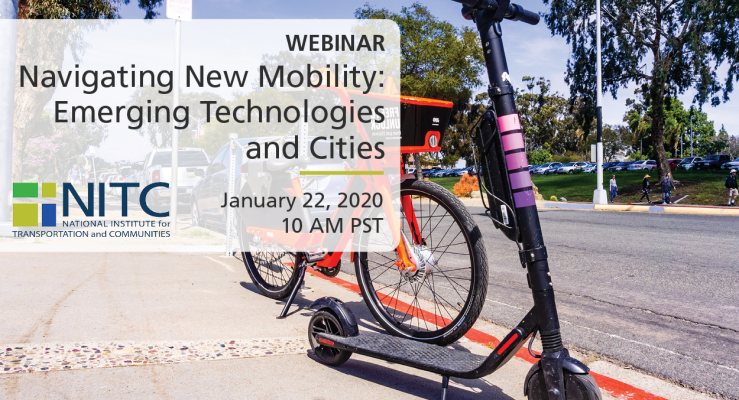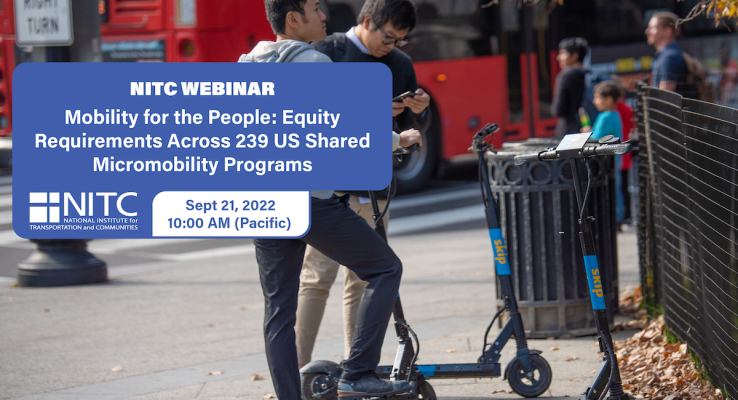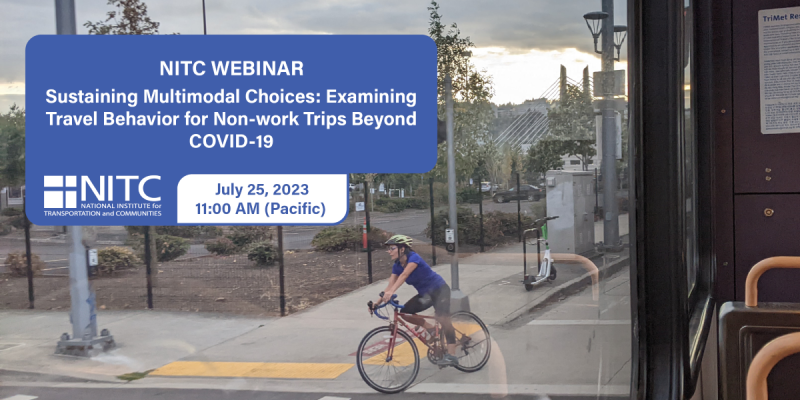The video begins at 5:42.
PRESENTATION ARCHIVE
OVERVIEW
Autonomous vehicles (AVs), e-commerce and the sharing economy are rapidly changing land use and transportation in cities. City leaders and professional planners are wondering how these technologies will change how they plan and operate cities. For the past year, the University of Oregon’s Urbanism Next Center and Sustainable Year Program focused staff and students on helping the cities of Gresham and Eugene better understand the potential impacts of a wide-range of topics and study a variety of potential responses to address the challenges and take advantage of the opportunities. These topics include issues related to safety, social equity, active transportation, sustainability and environmental impacts, design and management of the right-of-way, and the metropolitan footprint. In addition, the cities thought about city operations and budgeting and how they can inform decision-making, manage innovation, and consider the fiscal impacts and new mobility revenue.
During this webinar, the Urbanism Next researchers will discuss the research they conducted to help the cities navigate new mobility and emerging technologies. Researchers will...
Read morePRESENTATION ARCHIVE
OVERVIEW
Equity requirements in shared micromobility programs have become increasingly prevalent in recent years, but our understanding of the scope and breadth of these requirements has been relatively limited. To address this gap in understanding, we collected documentation about 239 shared micromobility programs from the U.S. and have compiled all the data into an online, interactive dashboard. In this webinar, we will discuss the kinds of equity requirements that are most prevalent, the strategies cities/agencies employ to operationalize equity, and the extent to which these programs are monitored and evaluated. We’ll present findings from our review of 239 U.S. programs, supplemented by five case studies.
In addition, we’ll introduce attendees to two practitioner-focused tools we created to accompany this work:
1)...
Read morePRESENTATION ARCHVE
OVERVIEW
We present a longitudinal research project using COVID-19 as a natural experiment to examine travel behaviors and attitudes in the Eugene-Springfield Metropolitan Region, OR.
Surveys and interviews were conducted in similar timeframes in 2020 and 2022. Findings reveal that travel activities, including driving, transit, and walking/biking, returned to pre-pandemic levels as society recovered. The pandemic had varying impacts on different modes of travel, with driving likely influenced by the perceived health threat of COVID. Some individuals recognized the feasibility and benefits of alternative modes like walking and biking for certain destinations, leading to less habitual driving.
The study highlights the negative impact on transit users during the emergency period, causing stress and mode switching. These experiences may result in reduced transit use in the future. Increased walking and biking in neighborhoods provide clear benefits, encouraging...
Read morePages
- « first
- ‹ previous
- 1
- 2
- 3
- 4



